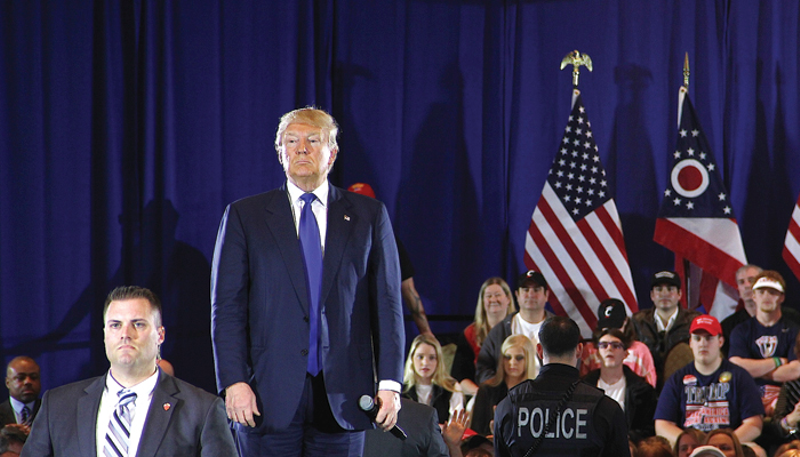Hello all. Hope your weekend was grand. Let’s do a brief news rundown, shall we?
Airbnb is a popular service in Cincinnati, but there are potential downsides to the short-term room rental website. Three properties in Mount Adams, for example, have drawn more than 20 complaints from neighbors in the past year around loud parties, parking issues and an outdoor fire pit. After those complaints, city inspectors slapped violations on the buildings and ordered that they not be used for short-term rental. But the manager of the buildings and her attorney says the city doesn’t have the legal right to do that, and that she’s since removed the fire pit and added new stipulations to the rental contracts prohibiting parties. They’ve appealed the violations. The city doesn’t have specific laws regulating rentals, but it could soon. Cincinnati City Councilman David Mann earlier this year introduced an ordinance that would limit, but not outlaw, whole-building Airbnb rentals like those receiving complaints in Mount Adams.
• We have a few new answers about campaign finance reporting irregularities from Cincinnati City Councilman Jeff Pastor. After two extensions beyond the filing deadline for Cincinnati’s 2017 city council elections, Pastor, a first-time councilmember, filed amended forms Friday with the Hamilton County Board of Elections. According to those forms, $50,000 Pastor gave his campaign wasn’t a lump-sum loan, but money he used to buy things for his campaign — mostly advertising. Because Pastor spent that money over time, he filed it as a series of in-kind donations, meaning he cannot pay himself back from his campaign funds. It’s unclear exactly what the money was spent on. Pastor was the only of the nine successful council candidates to fail to report all campaign expenditures, though mistakes on campaign finance forms are common among candidates. It’s unclear if Pastor’s revisions will be satisfactory for the Board of Elections, which could request further clarifications or refer the issues to the Ohio Ethics Commission. Pastor says he tapped volunteers and college students to do his campaign finance filings, leading to a number of errors on the forms.
The revised forms do not mention two personal loans — a $500,000 mortgage Pastor used to purchase a house in North Avondale and another $50,000 loan for an unknown purpose — both given by conservative backer Charles Shor. If any of that money was used by Pastor’s campaign, he would be required to report it.
• Walnut Hills residents now have a date to look forward to for a new grocery store in the neighborhood. Last year, the Kroger on McMillan Street closed up shop, leaving the community without a place to get groceries. But the Walnut Hills Redevelopment Foundation, which now controls the building, says it is working to have a new store called Peebles Corner Grocery up and running by next summer. In the meantime, residents are making do with a mobile food truck that brings produce on Friday afternoons.
• President Donald Trump has whittled his potential U.S. Supreme Court nominees down to four, and one of them is based in Cincinnati. As we talked about last week, Trump was mulling two judges from the U.S. Sixth Circuit Court of Appeals. One of them, Raymond Kethledge, appears on a list of finalists from whom Trump will select his appointment. Trump is expected to announce his decision this evening.
What are the stakes for Trump’s next court pick? The president has pledged that, once he has appointed a new U.S. Supreme Court justice to replace retiring judge Anthony Kennedy, the court will move to strike down Roe v. Wade, the 1970s decision that forbade states from outlawing abortion. But the Supreme Court won’t have the final say: it will be up to states individually to decide what sorts of laws they want in regard to abortions. In states like Ohio, which has already instituted strict laws aimed at curtailing abortion access, that would likely mean an all-out ban. But in other states, little might change, at least in the near future.
• Kentucky Attorney General Andrew Beshear, a Democrat, announced today that he will seek the governor’s seat in 2019. He’ll challenge Republican Gov. Matt Bevin, who has tacked a staunchly conservative course for the state. Beshear’s father, Steve Beshear, was Kentucky governor from 2007 to 2015. Though Democrats once held many offices in the state legislature and often won the governor’s seat, Kentucky has swung more often to Republicans in recent years, voting for Trump by a wide margin in 2016, for instance.






